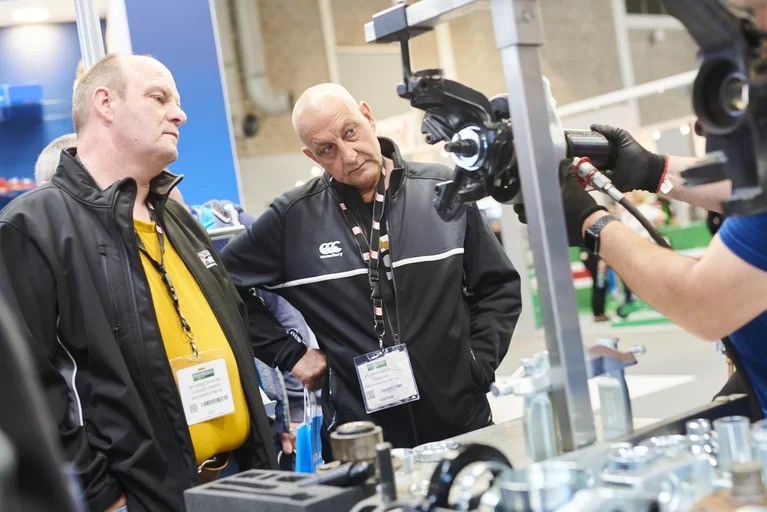Working out how much you should charge should involve more than simply plucking a figure out of the air, says Andy Savva

One of the most and frequent responses I hear from independent garage owners when asked: ‘What’s the basis of your labour rate?’ Answer: ‘it’s the going rate in the area’.
There is a law in this repeated answer. How can you set your labour rates within the same bracket as your competitors? If you do that tells me that you have the same fixed costs, rent, rates, insurance, electricity, gas, salaries etc. as everyone else, surely this cannot be possible?
Of course it isn’t the case. While independent garage owners will have similar running costs they won’t be exactly the same, yet labour rates are set on the basis that it’s the going rate within a given postcode. Let me tell you here and now this is certainly not the way to set your labour rates.
Your first challenge is to calculate your complete running costs for your business as mentioned earlier, this should be straight from your annual accounts. Let’s assume this figure is £395,000 this includes staff salaries for five techs and three non-productives, all your rent rates, insurance and general running costs etc.
So before anything happens you need to generate £8230 per week. Now on average the labour/parts split for an invoice is around 50/50, so an invoice of £200 will have £40 vat £80 labour & £80 retail parts sold. So the figure of £8230 now becomes £4115 for labour hours sold (income) just to cover the complete running costs of the business.
At this point I would not consider the mark-up of parts (usually around 30 to 40 percent) as I considered this income as a bonus.
I always based my business objectives of making my garages sustainable & profitable on labour hours sold. You then calculate the potential labour hours you have available to you to sell, think of the number of ramps and working bays times the number of productives (five ramps/ technicians x seven hours per day) x five days per week for 46 weeks in the year which takes into account holidays, training and sick days etc… Stay with me!
So if we use the calculation above the potential labour that can be generated will be 175 per week and if we multiply that by 46 weeks, we potentially can achieve 8050 labour hours (income) per year. Now we already know that we need to generate £395,000 per year to meet our fixed cost expenditure without making a profit, if we then divide the potential labour hours available (8050) by running costs £395,000 we get a labour rate of £49 per hour.
REAL TERMS
Now an important point, whatever labour rate you set will not necessarily mean that is what you recover or receive in real terms. In my travels up and down the country reviewing many different independent garages I how found that most do not sell more than four hours of labour per technician per day. A low figure which has a dramatic impact on the overall labour rate originally charged.
If your labour rate is say £50 and you are paying a tech to be there for eight hours, the labour rate is actually approx. £25 per hour. That’s called a recovery rate. Now this figure will fluctuate due to many factors like, productivity, utilisation, efficiency of the workshop, types of jobs you undertake, skill level, tooling and equipment that you have and any discounts as well as small repairs (bulb changes, lubricant top-ups) that are not charged for.
WILLING CUSTOMERS
There are many consumers willing and able to pay more for a service or product as long as they feel they have received value for money. I did not want to be in the same bracket as every other independent garage business offering the same services as everyone else not really offering anything different. This is much harder as we are all then trying to attract the same customer and it only pushes labour rates down or they never seem to go up for the right reasons.
The other concern I have with our sector both franchises and independents that advertise lower labour rates advertised for older vehicles. This drives me mad, why should we charge less? Is it because some other technician is going to come out of the tool cupboard who has less skill, paid less, who only works on older vehicles, so we can charge less? Of course this is nonsense, it’s the same techs, their skill level is no different when applied to older or newer vehicles.
I am happy to report that when I sold Brunswick Garage in December 2015 our labour rate was £90 per hour. However our actual recovery rate was £82 per hour, extremely healthy and unmatched as far as I am aware.
My final comment is, whatever your labour rate is, always remember that even if its higher than most, you must be able to justify it if and when questioned by your customers. You must ensure you continually explain the services and products you offer, and communicate the benefits why people should use your garage rather than competitors.
DON’T FEAR CHARGING HIGHER
When I began Brunswick Garage I knew my labour rate (£82) would be way above what other local independent garages charged. The average was around £50 in my part of North London. This did not bother me at all because I knew what I was offering potential customers, no one else could or would match us in terms of facilities, skilled staff, OE equipment and tooling, etc. So my labour rate was set to cover these costs and leave me a reasonable profit to keep investing in my business and people.










Go to comments